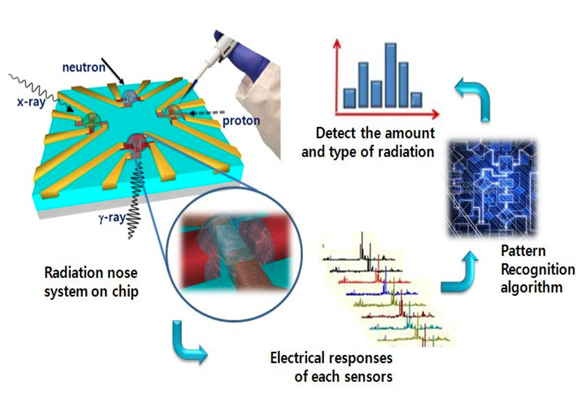T0174-BLow Cost, Light-weight, and Reusable Radiation Nose Payload
Low Cost, Light-weight, and Reusable Radiation Nose Payload
PI: Meyya Meyyappan, NASA/Ames Research Center, Jin-Woo Han (Co-I), USRA (Universities Space Research Association)
PI: Meyya Meyyappan, NASA/Ames Research Center, Jin-Woo Han (Co-I), USRA (Universities Space Research Association)

Technology Areas (?)
- TA08 Science Instruments, Observations and Sensor Systems
Problem Statement
Radiation exposure is a serious issue in manned space exploration. The impact of radiation on electronic equipment and other payloads is also a major concern. The knowledge base in these areas is typically developed through ground-based testing and modeling efforts. As a rule, there is no in-situ monitoring of various radiations and their energy levels during the missions as the equipment is bulky, expensive, and needs trained operators.
Technology Details
-
Selection DateNASA Internal (Oct 2016)
-
Program StatusActive
- 1 Balloon
Successful FOP Flights
Development Team
-
PIMeyya Meyyappan
-
PI Organization
-
Co-IJin-Woo Han
-
Co-I Organization
-
SponsorNASA

